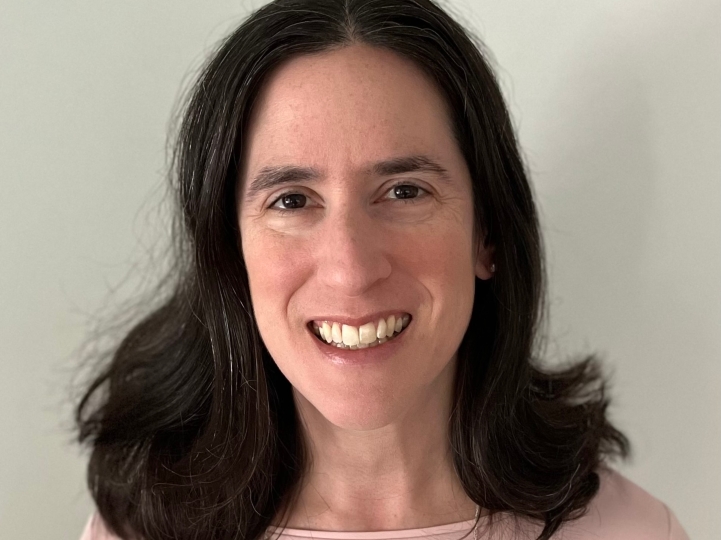
Religious Accommodations in Schools and Colleges Getting Federal Attention
Equity, Inclusion and Social Justice Equity, Inclusion, and Social Justice Division Spirituality and Religion in Higher Education Faculty Graduate New Professional Senior Level
August 16, 2023
JCC Connexions, Vol. 9, No. 3, August 2023
Critical Religious Studies in Higher Education: An Ongoing Column in JCC Connexions
This July, I was invited to attend an event called Free to Learn: Inclusion, Rights, and Accommodations for Students of All Faiths and None, which was hosted by the U.S. Department of Education’s Center for Faith-Based and Neighborhood Partnerships. Although I don’t know how I made it onto the invitation list, I was excited to travel to the capital to discuss with like-minded scholars and practitioners a topic I have previously studied (Maples et al., 2021) as well as care about as a parent and a university administrator. I was also eager to hear from the variety of federal employees scheduled to attend, because I wondered about the ways the government officially defines the concepts of inclusion, rights, and accommodations and how it advises local schools and colleges to address them. In this article, I share some of my main takeaways from the day.
The overall impression I got from five sessions I attended was the federal administration is focused on two main areas of student inclusion and rights: ensuring that all students are safe to express their religious identities in their educational settings and, when breaches of rights or safety occur, investigating and addressing those breaches. On the one hand, many of the day’s speakers advocated for broad ideals and policies surrounding diverse individuals getting along, tolerating, and hopefully respecting each other. On the other, federal attorneys from various departments came out with strength and intensity against civil rights violations.
The middle space between tolerating our diverse neighbors and prosecuting “bad actors” (a phrase that was said aloud from the podium that day), and which is what concerns me most, went largely unaddressed. To my mind, the space between tolerance and prosecution is acknowledging and addressing systemic and structural factors that oppress people with marginalized identities. Within that space, well-intentioned “good actors” (a term I only use here as a point of contrast) are also asked to consider how their actions and inactions contribute to the problem and then held to the expectation that they contribute to solutions. Within that space, White Christian Nationalism and Christian supremacy are disavowed by the people who hold dominant identities, so that the marginalized in the room can fully embrace them as “allies, accomplices, and coconspirators” (Edwards, 2020). Amber Greene, Special Assistant to the President for Racial and Economic Justice and the event’s closing speaker, did talk about “systemic oppression” and “other inequities,” but she did not mention religious inequity. In a breakout session on antisemitism and the experiences of Jewish college and high school students, Kira Simon of the Anti-Defamation League mentioned an unnamed “dominant group.” But I heard no other mentions of systemic oppression and not one calling out (from a panelist) of White Christian Nationalism or Christian supremacy—although other attendees that I spoke with agreed with my noting of these absences.
In a time when critical perspectives such as critical race theory are increasingly being attacked for political reasons (UCLA School of Law Critical Race Studies, 2023), I find it disappointing that many of the scholars and practitioners most committed to supporting religious, secular, and spiritual identity (RSSI) diversity in K-12 and higher education fail to see the need to use a critical lens around RSSI inclusion, rights, and accommodations. We should all be interrogating the educational venues in which we study and work to find and change the policies and norms that create structural barriers to all students’ full belonging. Tolerating and respecting our neighbors is too low a bar to settle for; when American culture relentlessly privileges Christian ways of being and knowing (Small et al., 2022), just teaching students to accept the presence of non-Christians does not go far enough toward making our schools and colleges inclusive.
Lest any readers think that I am coming down too hard on the event’s organizers, I will offer due credit to the Center for Faith-Based and Neighborhood Partnerships for taking an important first step toward addressing the complex issues of religious inclusion, rights, and accommodations in schools and colleges. My understanding is that the federal government has never before offered such a program, and I am grateful that the work has begun with this event and the publishing of related materials that are available to all. I also thank the organizers for bringing together an impressive group of panelists and participants who were diverse in (visible) ways around RSSI, race, gender, age, geographic region, professional role, and institutions and organizations of employment. Finally, I recognize that federal employees are constrained in what they can and cannot say publicly, and that therefore many individuals in the room during the event may hold critical perspectives that they were unable to share. But for those who presented, attended, or are working on these issues in their own lives, I encourage you to engage in the critical questions that are so necessary for ensuring true inclusion of all students’ identities.
References
Edwards, S. (2020). Building solidarity with religious minorities: A reflective practice for aspiring allies, accomplices, and coconspirators. Religion & Education, 48(3), 284-304. https://doi.org/10.1080/15507394.2020.1815933
Maples, G., Rediger, L., & Small, J. L. (2021). Privilege as policy? An analysis of student religious accommodation policies in higher education. Journal of College and Character, 22(4), 272-290. https://doi.org/10.1080/2194587X.2021.1977151
Small, J. L., Edwards, S., Sayers, M. R., Bowling, R. L., Collett, J. R., Kaur-Colbert, S., & Nielsen, J. C. (2022). Recognizing Christian hegemony as broader than Christian privilege: Critical religion scholars respond to Glanzer (2022). Religion & Education, 49(4), 355-373. https://doi.org/10.1080/15507394.2022.2139996
UCLA School of Law Critical Race Studies. (2023). CRT Forward. https://crtforward.law.ucla.edu/